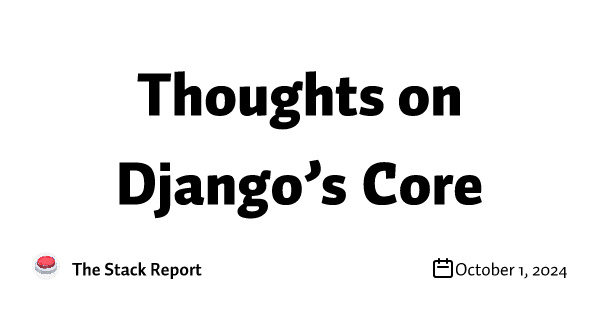The Evolution and Future of Django: Emphasizing Third-Party Packages

Django has experienced significant growth and adaptation over its nearly 20-year lifespan, remaining a popular web framework due to its strong foundational features like the request-response cycle, ORM, and a rich ecosystem of third-party packages. Despite challenges such as leadership turnover and community continuity, Django has thrived through a time-based release schedule and an API Stability Policy, which have ensured consistent updates without breaking existing code. The Django Fellowship Program has been crucial in managing development and maintaining stability. As the community grows enthusiastic about Django's future, there's a call to focus on integrating and leveraging the vibrant ecosystem of third-party packages rather than overloading the core framework. Discussions around adding new features emphasize the importance of maintaining a manageable core while celebrating the diverse contributions from external packages.
What are the key factors that contributed to Django's longevity?
Django's longevity is attributed to its time-based release schedule, API Stability Policy, and the support of the Django Fellowship Program, which together ensure consistent updates and a stable environment for developers.
Why is there a focus on third-party packages instead of adding features to Django's core?
Emphasizing third-party packages allows for more flexibility and innovation without burdening the core framework, which helps maintain its stability and manageability while still providing developers with diverse tools and features.
How does the Django community plan to move forward?
The community aims to harness the current enthusiasm to make incremental improvements to Django while enhancing the visibility and integration of third-party packages, reinforcing the framework's "batteries included" philosophy.